
Bakers, manufacturers, suppliers, and experts from across the industry gathered in Warwickshire last week for the British Society of Baking’s 2023 autumn conference.
‘Growing your business’ was the topic of the day as speakers took to the stage at the Ardencote hotel to explore how to drive growth, how to overcome challenges on the journey for success, and what trends could impact bakery in the future.
Here are some of the highlights from the day:
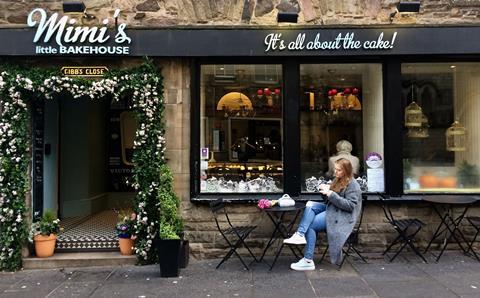
Invest in your staff and customers
Employees are the beating heart of any business so investing in their growth and wellbeing is essential. That was one of the messages from Ashley Harley, chief operating officer at Edinburgh-based bakery business Mimi’s Bakehouse, which was recently crowned Scottish Baker of the Year.
“We have a strong and loyal team. Our family values flow down, and we invest back into our team,” Harley said during her presentation. “People say: ‘What if you train someone and they leave?’ Well, what if you don’t train someone and they don’t [leave]?”
Customer-facing staff and management at Mimi’s Bakehouse have undertaken training including British Sign Language (BSL) courses run by charity Deaf Action. “[BSL] is a real skill that can be used in the workplace. I’ve seen our management use it and people’s faces light up when you communicate with them in a different language,” Harley explained.
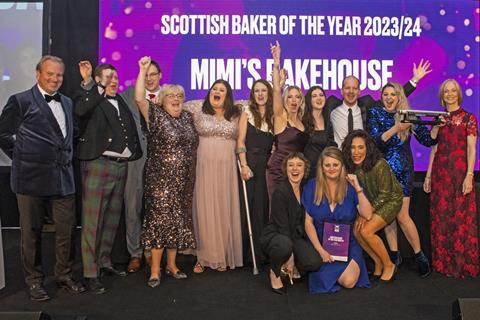
Awareness courses on making businesses more accommodating for people who are neurodiverse, including those with autism and ADHD, have also been completed. This, Harley noted, prompted the creation of a wellness survey for all staff, which is given to them at the start of their employment and allows them to share information with management, should they wish to do so.
Ensuring those who identify as LGBTQIA+ feel safe has been another priority for Mimi’s, which has several non-binary members of staff, prompting conversations around changing areas and toilets. “Use organisations and don’t be afraid to ask questions,” Harley added.
She also highlighted a session undertaken with coaching organisation Reach the Peak, which helps individuals and teams embrace their potential. The session included using the superhero pose (standing with feet shoulder width apart, head held high, and hands on hips) to infuse yourself with confidence – something which Harley got the BSB attendees to do during her speech.
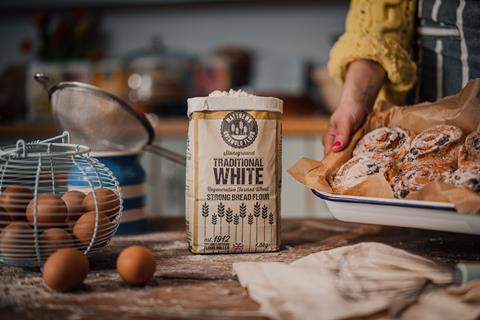
How to go from crisis to success
Mentality, measurement, strategy, luck, and leadership – these are the five key levers to success, according to Bertie Matthews, managing director of family-run firm Matthews Cotswold Flour.
In 2017 the milling firm entered into a company voluntary arrangement (CVA) during which they were given a 10% chance of survival. “We took our eye off the ball,” Matthews admitted during his presentation. “We made decisions without understanding the numbers.”

Six years on, and with the eighth generation at the helm, the business is thriving. But, as Matthews outlined, the road to get to this position wasn’t easy.
“When things are going wrong, it’s not about taking a step forward, it’s about taking a step back. Look at what it is you need to do and don’t go in guns blazing.”
Matthews took the audience through these five steps, imparting the knowledge that the milling firm learned along the way.
Mentality: “From my experience, your mentality and motivation are absolutely pivotal,” he said. “The best way to get to your future is to create it. If you imagine every single day what it is you want to do, you will make it a reality.” Part of this includes employing the right people, ensuring they have a growth mindset as opposed to a fixed one as they are likely to see the challenges as opportunities.
Measurement: “The first real step is understanding the numbers – it is absolutely critical… this will build a picture in your mind of where the business is.” In simple terms this means understanding your input costs, operational costs, margins, profits/losses, and more. Don’t be afraid to share that information with your team, Matthews added, so they understand the journey the business is on.
Strategy: aka the “grand plan”. Part of this is choosing what not to do. Realising Matthews Cotswold Flour couldn’t keep up with the speed and efficiency of the major players in the market, the business kept its volume but expanded its range to better meet the needs of its customer base, which consists of “true artisans” and home bakers. “We are constantly changing over flour lines,” he said. “We are not the most efficient business in terms of production but we’re going for range and offering.”
Luck: Quoting film producer Samuel Goldwyn, Matthews said “the harder I work, the luckier I seem to get”. While making sure not to dismiss the horrors of the pandemic, Matthews noted how ecommerce boomed for the business as the UK was plunged into lockdown. “Covid was a very weird time. On one side we lost 30% of our trade, on the other we had huge amounts of growth online.” The firm was also “fortunate” to secure listings with major retailers, including Tesco and Waitrose.
Leadership: Being a leader is all about “making those hard decisions”. As a leader you need to understand what a leader knows, what they do and how they do it, and instilling it in everything you do every day, Matthews concluded.
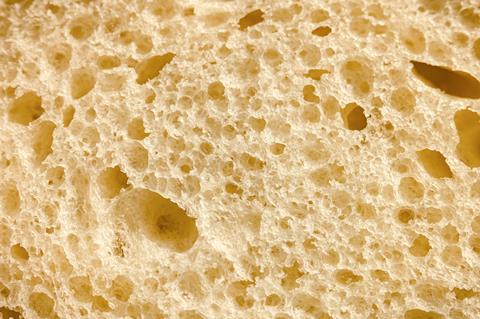
Image analysis is striding into the future, but AI isn’t on the cards
“We all see things differently,” said Paul Cliffe, managing director of Calibre Control, who presented the technical paper for the conference in which he outlined the progression in image analysis.
That is precisely why C Cell was developed – to eliminate subjective human error and create consistent bakery products. The technology is used globally to measure over 50 different quality parameters including slice shape, size, softness, crumb cell structure, and more. The first version was launched in 2002 and has found success in the UK market, particularly as this market has “invested in white sliced bread and how to get a better quality measurement for this”, Cliffe said.
A recent, albeit brief, appearance in a Warburtons TV advert confirms it is still a vital part of the development and manufacturing process today.
Over the years software and hardware, particularly camera technology, has improved meaning the applications for C Cell have expanded beyond white sliced bread to other baked goods. Its customer base has also expanded beyond commercial bakeries to major universities, global ingredients companies, bakery equipment suppliers, and even snack food manufacturers.
Looking to the future, Cliffe said the range of applications C Cell can be used for will expand – providing it is what the market wants. “We could develop more applications and produce more data, but if it’s not relevant to the bakery industry or food industries then it’s not worth doing,” he said.
However, on the topic of AI Cliffe admitted that due to the rise of artisanal style products, he didn’t think it was on the cards for Calibre Control anytime soon.
“We’re not going to produce our own AI version of C Cell,” he said. “Some people think that C Cell is AI – it isn’t, it’s just image analysis and has algorithms but it’s not predicting whether you have a good or bad product. It is leaving the data to the interpretation of the baker or ingredients supplier.
“Our role with AI and food quality is really based on how people use that data. A manufacturer may have their own predictions as to what makes a good product based on the ingredients coming in, and we might be able to help by capturing reliable data to feed into an AI system.”
There is a role for AI in some sectors and industries, particularly ones with very repeatable processes, Cliffe added. But he didn’t believe this to be the case in bakery at present.
“Not all bakery processors want to produce the same product as others so therefore we’ve got to question whether or not AI is suitable… The data is there; it can be used but we don’t think it’s our role to be the creator of an AI bakery quality analyser.”



















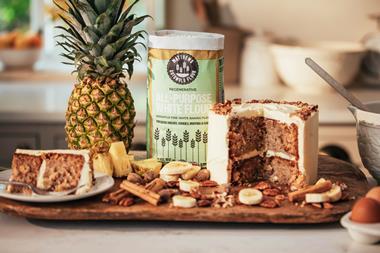

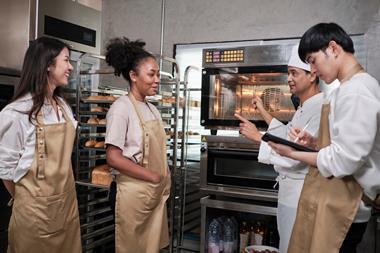

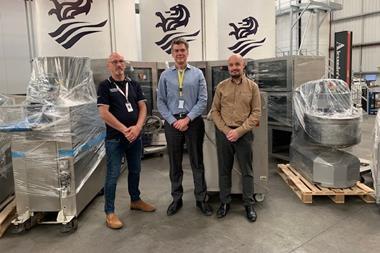
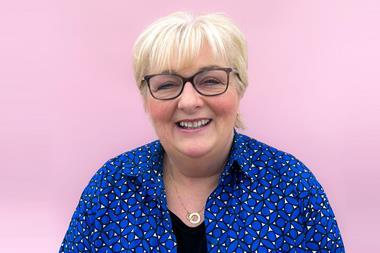




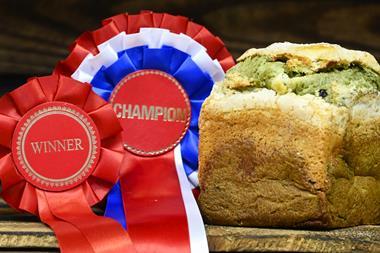


No comments yet